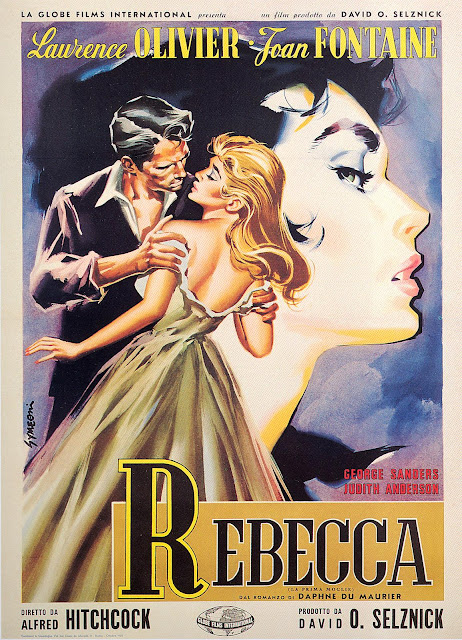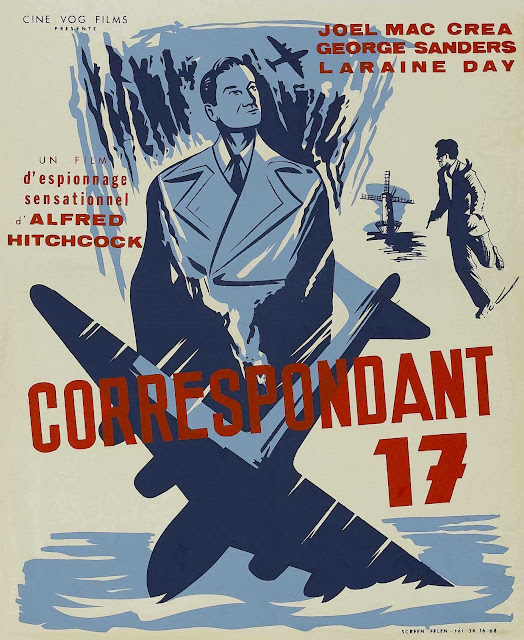Director: Alfred Hitchcock
Laurence Olivier, Joan Fontaine, George Sanders, Judith Anderson, Nigel Bruce, Reginald Denny, C. Aubrey Smith, Gladys Cooper.
Alfred Hitchcock was and is still the undisputed Master of Suspense, and there is a lot of that here in his foray into Gothic horror, as the mystery surrounding the unseen yet omnipresent Rebecca will engage the viewer from its dreamy start to its bleak conclusion. This is exactly what atmospheric is supposed to be about, and in black and white, it shines. This is also what Gothic horror is in essence, and many have imitated yet come up short, most notably M. Night Shyamalan who, in trying to go for a shock twist and purported "atmosphere" only creates a bad aftertaste and a hangover the size of Mount Everest. This is, essentially, Hitchcock's first true masterpiece. Not one performance rings false, not to the novel or to their respective interpretations. Lawrence Olivier, quite possibly one of the greatest actors that ever lived, portrays a broken man who still lives haunted by the past as he himself were still living in that unending hell. Judith Anderson embodies one of the most coldly sadistic figures in cinema history, her smooth and elegant truculence only exceeded by Anthony Hopkins' rendition of Dr. Hannibal Lecter. One can't seem to understand the way she wallows in her dead mistresses' clearly perverse nature, but that exactly she does, right down to her own end. George Sanders does what he does best: sneer, smirk, and spit line after line of practiced venom, and would be honored 10 years later in ALL ABOUT EVE. Gladys Cooper, still striking in her 50s, plays into her casual cattiness which means no harm, although her rendition of Beatrice Lacy is a little subdued from the novel's version. And then there is Joan Fontaine. Not one of the best actresses on film, yet here, playing a role that evolves beautifully from a frightened, weak girl who is put into a situation she does not understand and who turns right at the point of losing it into a much more mature, strong woman capable of holding her own, she carries the weight of the entire drama and comes forth with flying colors. While I would have preferred Anne Baxter who would have been the exact right age for this role, Fontaine exudes so much restraint and nervousness about her character (partially to blame Olivier's treatment of her and Hitchcock's telling her the entire cast hated her), it's almost a relief when she finally decides to confront Olivier about what it the secret of Manderley. Not many roles require such a change and not many actresses would sink her teeth into a part that requires being put-upon until she can't stand no more, and this is one beautiful performance. A movie that should have won more Oscars that year, REBECCA has since grown in stature and proved that a film need not trophies to be Timeless and Great.



















































































